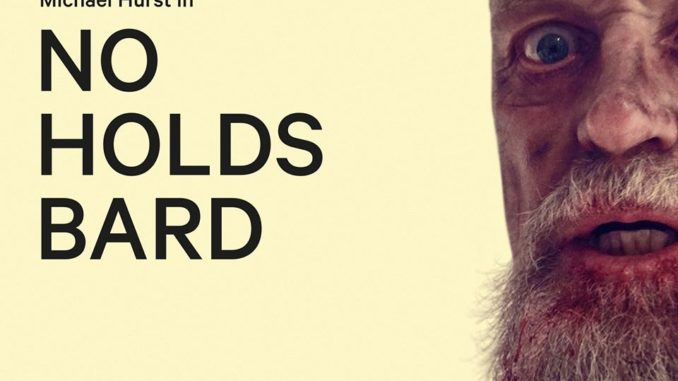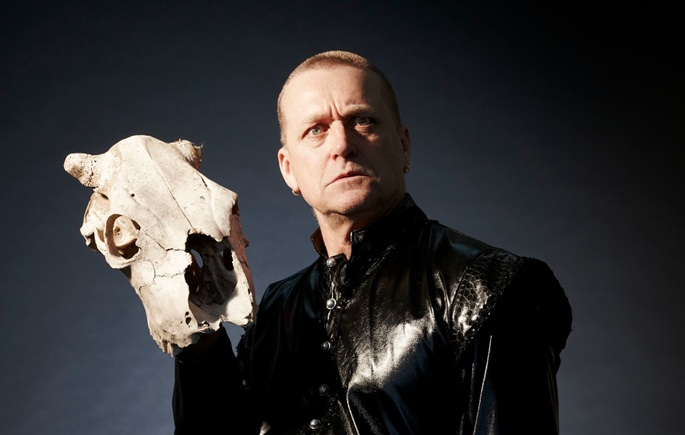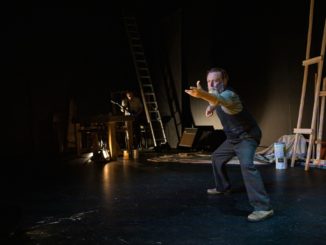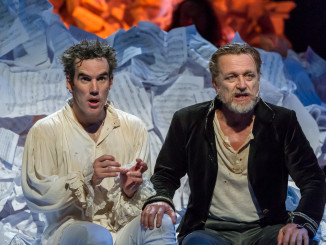
[Too Many Harks, Not Enough Bite]
Part of any creative endeavour is reception – whether that is an audience of strangers or your cousin Larry. Even the most shy and self-effacing creative will inevitably have to put their labour love in front of another human being to gauge their reaction.
One of the worst aspects of doing any kind of writing about media is that criticism is seen as inherently negative. That is not its purpose. Criticism is an inherent part of the reception to creative work. It is an opportunity to discuss and analyse something in its context and pull it apart, not for the sake of finding ‘weaknesses’ or ‘flaws’, but to explore why a specific piece affects us, and how it achieves or fails to do so. It is also about thinking about the ways in which a piece fits into a broader context, whether in terms of genre or a specific social or political frame. Ultimately, it is about making people think about art in a deeper way than ‘I loved it’ or ‘It was a flaming pile of s….’
Taking the reaction to a bad review as its starting point, No Holds Bard attempts to capture the self-doubt and self-interrogation that comes when that criticism does not go the way the artist hoped. Sadly, while it boasts many enjoyable qualities, and a strong set of performances from Hurst, that self-interrogation does not go far enough.
A one-man-show created by Hurst with collaborators Dan Musgrove and Natalie Medlock that first premiered in 2012, No Holds Bard takes a skewed look at four of Shakespeare’s most well-known creations: Hamlet, Macbeth, King Lear, and Othello. Using the plays as a jumping-off point, the show offers Hurst’s brain as the site for these men to interact, to fight, to brag and to confront their own demons.
The show opens on a darkened stage, with an offstage female voice quoting from a withering opinion of Hurst’s take on Hamlet that skewers the actor for the hubris of interpreting a role considerably younger than himself.
Cue lights on Michael Hurst in a pageboy haircut with a gun at his head.
Within minutes, Michael is subsumed by his version of Hamlet, wracked by the doubts of his literary source and the actor playing him. Soon Hamlurst is joined by Macbeth and the others.
Catching all four characters just before their respective falls, No Holds Bard tries to map their respective struggles onto Hurst’s crisis as he tries to figure out where he is, in terms of age, in terms of taker to, in terms of relevance and energy.
It is a ridiculous concept, and one of my concerns going in was that it would end up being some kind of self-aggrandising exercise that just be a revue of highlights from Shakespeare’s tragedies.
No Holds Bard goes some way towards recognising the narcissism and existential traffic jam of its set up. The play also plays on some of the characters’ respective dilemmas while acknowledging some of their less compelling character traits. The show is also savvy enough to ridicule certain elements of each character have become cultural shorthand: Lady Macbeth’s compulsive handwashing, Desdemona’s incriminating handkerchief, and Hamlet’s soliloquy are easy pulls for laughs and No Holds Bard deploys them in a variety of clever/silly ways.
What unsettles me about the show is that it manages to accomplish these elements with ease, but when it comes to more serious and complex issues No Holds Bard displays a disturbing aversion to risk.
I found the way the show dealt with gender interesting. Women are offstage, with the men presenting them as either mad or out of reach. They disdain women while being completely helpless without them. It feels pointed – like the outline of a critique of Shakespeare’s work (and the self-centeredness of male artists) that does not need to be explicit.
While I appreciated the show’s acknowledgement and framing of the absence of women from the piece, there is an absence that that show fails to acknowledge, and that is anything to do with Othello’s race.
Even I need to acknowledge that I missed it until a conversation I had afterwards with someone who had not been at the show. From a thematic standpoint, Othello’s presence makes sense. But at no point during the show did I sense any attempt to highlight or address the history of white actors playing this role.
The lack of face paint is not enough. This is a show about a performer confronting his own relevance – by ignoring this history and presenting the character in the same way as the other three, No Holds Bard ends up feeling toothless and superficial.
While productions have offered different takes on this aspect of the play, Othello’s tragedy cannot be divorced from race, and to ignore that aspect completely undermines the show’s attempts to pull the four characters’ tragic falls together. We may not know Shakespeare’s intention when he decided to make the title character black, but it was a deliberate choice. And so is the decision to ignore it in No Holds Bard.
In retrospect, this element of the show looms over all others, which is a shame. The bigger shame is that a show based around self-reflection and analysis of Shakespeare’s texts is not brave enough to tear into the more contradictory and problematic elements of his work (including their presentation). To base a show around an ageing white actor struggling with his own relevance while having him play Othello and not acknowledge Othello’s race (or his own) is a massive oversight and a failure of nerve.
A genuinely incisive deconstruction would have offered a critique of Othello, at least in terms of the history of white actors playing the character in blackface (including Laurence Olivier or Michael “Dumbledore” Gambon in 1990). If it had, then its title would have been a statement of intent as well as a pun.
While No Holds Bard has many enjoyable qualities, its deliberate minimisation of this important context of one of Shakespeare’s most well-known characters is a major disappointment.
No Holds Bard plays at Q Vault as part of Summer at Q and Auckland Fringe 25 to 29 February, 2019.




Leave a Reply